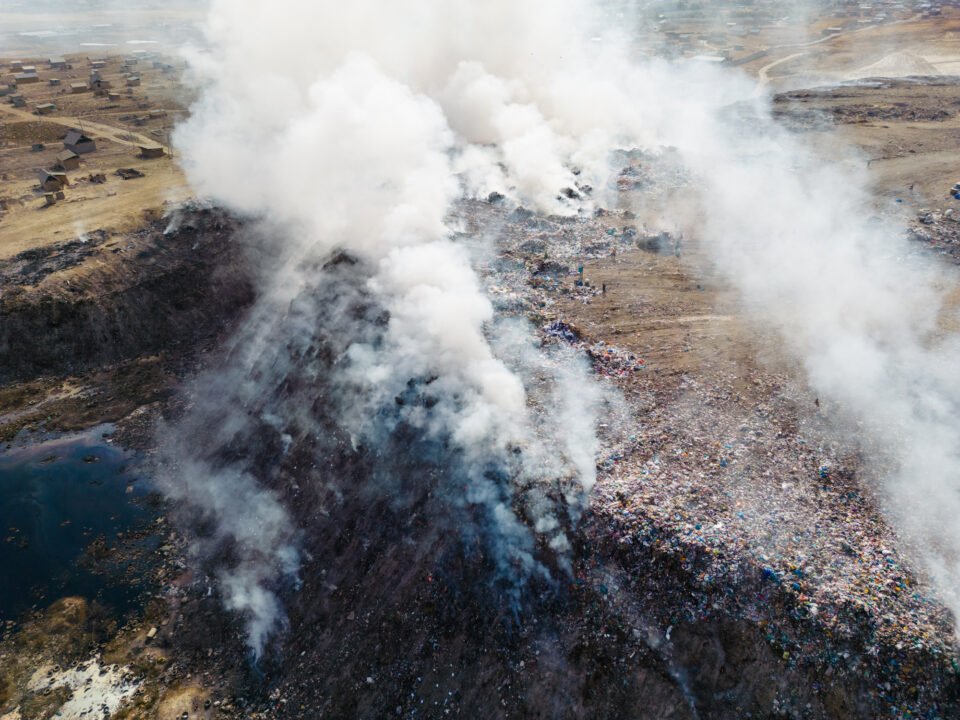When a fire started in a Rice County landfill last year, it burned for close to a week and kept neighbors shut inside their homes to avoid breathing toxic air.
The fire was probably started by a battery. It also was not an isolated incident. These types of fires were occurring all around Minnesota. A waste fire in Koochiching County in 2017 cost a half million dollars, and Blaine lost a transfer station worth $20 million to a battery fire in 2018.
Landfill battery fires occur every couple of days. You can watch a video of a battery fire showing how quickly they spread.
Why are there so many batteries in the trash?
Batteries are in electronic products that people throw away every day. We’ve made it too difficult to recycle electronics. Last year we only collected 19% of our e-waste, according to the Minnesota Pollution Control Agency. The result is a huge expense for waste facilities. The failure to recycle is also a huge opportunity cost for our economy.
As Dr. Roopali Phadke of Macalester College has pointed out, electronic waste, or e-waste, can be a sustainable path to both good jobs and the critical metals we need for the energy transition. E-waste is an environmentally hazardous product, but it also is packed with metals that we need to move forward into a more sustainable future.
We joined forces with Phadke to publish “The Economic Impact of E-Waste Recycling in Minnesota: A Pilot Study.” One of the key results of the study was that if Minnesota’s e-waste stream were collected and the metals recycled, it would be worth $3.2 billion.
In addition to the value of rescuing precious mineral resources, we’ve learned first-hand of the job opportunities in e-waste recycling when we visited a few facilities. We met folks learning new skills, working in both industrial settings doing disassembly and sorting, and in high-tech settings wiping data and refurbishing devices.
One e-waste recycling company in St. Cloud had a gym and a child care center for its employees. Another was ready to build a second shredding facility and add employees. We have qualified folks on the Iron Range who want and need these kinds of jobs. Many of us have watched our children grow up, graduate from college, and not return to the Range. We’d like to see that reversed.
The recycling process needs a reliable flow of e-waste, however, and that’s where we need policy change. Is the old smoke detector free to recycle? It’s not. How about the old microwave in our garage? Nope. Why is the fee for the TV even more? The cost per item can range from $15 to $75. It is no wonder that folks dump old electronics alongside town roads or stuff them in the garbage cans.
We’re advocating for a bill at the Legislature that would provide free recycling for all electronic products at convenient locations across Minnesota. The cost of collecting and processing it would be covered by the manufacturers of those products.
The cost of the program won’t be much compared to the cost currently being charged to residents for recycling electronics. It also is small compared to the environmental cost and the expense of cleaning up toxic chemicals leaching from landfills into our water and soil. The increase in electronic waste contributes to the need to expand landfills, and the loss to waste facilities from battery fires is also significant. The costs from inaction quickly add up to millions every year.
Clean Water Action and Recycling Electronics for Climate Action, which is an electronic waste recycling association, are leading the way to get the bill passed.
We need bright paths to a sustainable future on the Iron Range, and the e-waste supply is growing at 4% annually around the globe.
It’s a perfect match.
The 100% e-Waste Collection bill is critical because without it, we’ll continue to dump electronics into landfills and trash incinerators, all leaching toxic chemicals into the environment and causing fires.
This is our chance to launch a successful effort and lead the U.S. in collecting and recycling this resource.
Independent Journalism for All
As a nonprofit newsroom, our articles are free for everyone to access. Readers like you make that possible. Can you help sustain our watchdog reporting today?

